- Home
- Gustave Aimard
Les outlaws du Missouri. English
Les outlaws du Missouri. English Read online
E-text prepared by Camille Bernard and Marc D'Hooghe(https://www.freeliterature.org) from page images generously made availableby HathiTrust Digital Library (https://www.hathitrust.org/digital_library)
Note: Images of the original pages are available through HathiTrust Digital Library. See https://babel.hathitrust.org/cgi/pt?id=uc1.b3750786;view=1up;seq=495
THE MISSOURI OUTLAWS
by
GUSTAVE AIMARD
Author of "Prairie Flower," "Indian Scout," etc., etc.
Translated by Percy B. St. John
LondonJohn And Robert MaxwellMilton House, Shoe Lane, Fleet Streetand35, St. Bride Street, Ludgate Circus.1877
NOTICE.
Gustave Aimard was the adopted son of one of the most powerful Indiantribes, with whom he lived for more than fifteen years in the heart ofthe prairies, sharing their dangers and their combats, and accompanyingthem everywhere, rifle in one hand and tomahawk in the other. In turnsquatter, hunter, trapper, warrior, and miner, Gustave Aimard hastraversed America from the highest peaks of the Cordilleras to theocean shores, living from hand to mouth, happy for the day, carelessof the morrow. Hence it is that Gustave Aimard only describes hisown life. The Indians of whom he speaks he has known--the manners hedepicts are his own.
PREFACE
Very few of the soul-stirring narratives written by GUSTAVE AIMARDare equal in freshness and vigour to "The Missouri Outlaws," hithertounpublished in this country. The characters of the Squatter, the real,restless, unconquerable American, who is always going ahead, and ofhis wife and daughter, are admirably depicted, while his eccentricbrother is a perfect gem of description. The great interest, however,of the narrative is centred in Tom Mitchell, the mysterious outlaw,whose fortunes excite the readers' imagination to the utmost. Therecan be no doubt he is one of the most original characters depicted bythe versatile pen of the great French novelist. In addition to beinga story of adventure, "The Missouri Outlaws" is also a love tale, andabounds in tender pathos, the interest of which is well sustained in"The Prairie Flower" and in its sequel, "The Indian Scout."
PERCY B. ST. JOHN.
London: _February, 1877._
CONTENTS
I. THE GOOD SHIP PATRIOT II. SAMUEL DICKSON GIVES ADVICE TO HIS BROTHER III. A QUEER CUSTOMER IV. AN ALLIANCE OFFENSIVE AND DEFENSIVE V. A GREAT MEDICINE COUNCIL VI. SAMUEL DICKSON HUNTS A MOOSE DEER VII. JOSHUA DICKSON BECOMES MASTER OF THE VALLEY VIII. DIANA DICKSON AND HER FOE IX. THEY MAKE AN ACQUAINTANCE X. WHO THE STRANGER WAS XI. EXPLANATIONS XII. HOW THE THREE TRAVELLERS WENT TO GEORGE CLINTON'S XIII. TOM MITCHELL XIV. SAMUEL AND JOSHUA XV. NEW CHARACTERS XVI. TOM MITCHELL AS REDRESSER OF WRONGS XVII. A DIPLOMATIC CONVERSATION BETWEEN TWO RASCALS XVIII. THE PRISONER XIX. IN WHICH TOM MITCHELL DISCOVERS THAT HONESTY IS A GOOD SPECULATION XX. A STRANGE CHASE XXI. CAPTAIN TOM MITCHELL, THE AVENGER XXII. A DESPERATE STRUGGLE
THE MISSOURI OUTLAWS
CHAPTER I.
THE GOOD SHIP PATRIOT.
On the 4th of August, 1801, a little after eight o'clock at night, justas the last rays of the setting sun disappeared behind the heightsof Dorchester, gilding as they did so the summits of certain islandsscattered at the entrance to Boston Bay, some idlers of both sexes,collected on Beacon Hill, at the foot of the lighthouse, saw a largevessel making for the harbour.
At first it seemed as if the ship would be compelled to desist from herdesign, as the wind was slightly contrary; but, by a series of skilfulmanoeuvres, it at last passed by the danger which threatened, the sailswere one by one taken in and furled, and finally the anchor was castbeside one of the many vessels in port.
A few minutes later nothing was to be seen on deck save one man walkingup and down doing duty as watch for the time being.
The vessel had, under cover of a dense fog, escaped from Brest, slippedpast the English cruisers, and finally, after many dangers, reached itsdestination.
Descending into the cabin, we find two men seated at a table upon whichwere glasses, bottles, pipes, and tobacco, conversing and smoking.
These were Captain Pierre Durand, a young man, with regular but rathereffeminate features, and yet a look of frank honesty, to which hissparkling eyes, his broad forehead, his long waving hair, gave anappearance of singular energy. Though every inch a sailor, there was arefinement about him not generally found in his class.
His companion was a handsome and haughty young man, of abouttwo-and-twenty, of moderate height, but with very broad shoulders; hewas evidently of powerful make, with nerves of steel. His complexionwas olive; his hair long wavy black; his eyes were large and bold; theexpression of his countenance sombre and thoughtful, while at thisearly age many a wrinkle caused by thought or suffering was to beobserved.
There had evidently been a warm discussion, for the captain was walkingup and down, a frown upon his brow. Suddenly, however, he reseatedhimself and held out his hand across the table.
"I was wrong. Do not be vexed," he said.
"I am not angry, my good Pierre," he answered.
"Then why sulk with your friend?"
"I do not sulk, heaven knows; I am simply sad. You have reopened awound I thought forever closed," the other added with a sigh.
"Well, then, in heaven's name, if it be so," cried the captain, "let ustalk about something else--and above all, let us drink. This old rum isa sovereign remedy for the blues. Your health, my friend."
Both drank after touching glasses, and then silence again ensued.
"Now, my dear Oliver," resumed the captain, "at last we are safe inBoston. We leave tomorrow. What do you intend to do?"
"You remember our conversation at Brest?"
"I have not forgotten it, but I never seriously entertained the idea.We had dined rather copiously."
"We were very sober. There were two bottles on the table, one emptyand the other nearly full. I then told you that though I had only justreturned to France after an absence of ten years, I was compelled toleave at a moment's notice, and to leave without raising any suspicion.I wanted to depart without anyone being able to obtain the slightestclue; you remember," he added.
"I do, and I told you that I would run the blockade that very night, ifthe weather turned out as bad as I expected. Did I keep my promise?"
"With all the loyalty of your honest heart. I also told you I intendedremaining in America."
"It is to that madcap resolution I object," said the captainemphatically. "Why not stay with me? You are an excellent sailor--youshall be my chief officer."
"No, my friend. I can accept nothing which can ever tempt me to returnto France," he answered.
"How you suffer!" sighed his friend.
"Horribly. Come, my friend, as we shall part for ever tomorrow, I willtell you my history."
"Not if it makes you suffer."
"I will be brief. Sad as my story is, it is not very long."
"Go on," replied Captain Durand, filling up two more glasses of rum,and lighting a fresh cigar for himself.
"I will not sermonise, but begin at the beginning. I was born in Paris,but might be English, German, or even Russian, for all I know. I amsimply aware that my birthplace was Paris, in the house of a doctor,where my mother took refuge. It was in the Rue St. Honore I firstsaw the light but, as soon as I could be removed, was sent to theFoundling. There I remained four years, until a loving young couple,who had lost their only child, adopted me. They were poor, and lived onthe third floor of a wretched old house, in the Rue Plumet, where, Imust own, I had enough, but of very coarse, food."
"One day, however, fortune knocked at the door. My adopted mother was,and still is, one
of the handsomest women in Paris. By accident an oldfriend, a distant relation, a man of high position, found her out. Heat once procured a lucrative appointment for my supposed parent, andwe moved to a splendid residence in the Faubourg du Roule. The friend,who lived close by, at once began to visit us every evening, and, by acurious coincidence, the husband always found business which requiredhis absence. He never returned until a quarter of an hour after theother had left."
"Accommodating husband," sneered Durand.
"Just so. But, unfortunately for me, I became older, curious, wasalways turning up when not wanted, and saying things which were notrequired. It was decided that I was an incorrigible scamp, and must besent away."
"My adopted mother had relations at Dunkirk, and I was packed off tothem to be sent to sea as cabin boy. Then only did I discover thatthese people were not my parents. My supposed mother coldly kissed me,told me to be a good boy and gave me ten sous; my father, who escortedme to the ramshackle vehicle which traded between Paris and Calais,told me to remember this, that society never having done anything forme, I was to do nothing for society; the only virtues to which men everowed success were, he said, selfishness and ingratitude. He furtheradded, 'Good-bye, we shall never meet again.'"
"He turned his back and left me. This was my first young sorrow, and Ifelt it very much."
"I feel for you," said the captain; "your story is very much like myown."
"These people, knowing me then to be very delicate, hoped that thehardy profession they had selected for me would kill me. They weremistaken."
"As I see," answered Durand.
"I was first boy on board a herring boat, where I had to endure thebrutality and insolence of a low drunkard, who never spoke except withan oath from his mouth, accompanying it with a blow from his cane. Myapprenticeship was one long terror. Sometimes a whaler, sometimes a codfisher, sometimes a slaver. I have been five or six times round theworld; abandoned on the wildest coast of America, I was a long timeprisoner; shipwrecked on an island in the Pacific, I wonder I did notdie of misery and despair."
"Poor Oliver!"
"But bad as was my life, I everywhere in savage lands found somefriend; but in France, from which I was ignominiously expelled elevenyears ago, I found on my return two implacable foes--Calumny andHatred. I was a very sharp boy, and trusted wholly to strangers.I could not help hearing many things I should not have heard. Idiscovered the secret of my birth, who were my father and mother,their exact names, and their position in society. One day, in a momentof frenzy--and you know I am extremely violent--I was foolish enoughto let out the fact that I knew all. From that day a vow was made toaccomplish my ruin; the most calumnious reports pursued me; I wasaccused behind my back and in the dark of the most horrible crimes. Itis to me still a wonder how I have escaped all the ambushes laid forme. My foes hesitated at nothing. They tried to assassinate me. Is itnot horrible? Well, having failed in the ordinary way, they bribed thecaptain of a ship I had joined to maroon me on the coast of New Mexico,where dwell the most ferocious Indian tribes."
"And the captain did this?"
"Pardieu!" cried Oliver; "He was a poor man, and the father of afamily. I was cast on shore stupefied by laudanum. When I recovered theship was already out of sight. I expected to be killed by the savagesor to die of hunger. How neither happened is too long a story to tellnow. But the end of all is, I have determined on an eternal exile.Never again will I place myself in the power of my foes, who live rich,happy, and respected in France."
"You will establish yourself in Boston?"
"No! I have done with civilised life; I shall now try that of thedesert. It is my intention to bury myself in the wilds until I findan Indian tribe that will welcome me. I will ask them to receive meas a warrior. I thoroughly understand the manners and customs of theaborigines, and shall easily make friends."
"I believe," observed the captain, "that you are right in thisparticular. You are young, brave, and intelligent; therefore you willsucceed even in this mad project. But mark my word, you may live five,perhaps ten years with the Indians; but at last you will weary of thisexistence--what will you do then?"
"Who knows? Experience will have ripened my reason, perhaps killed mygrief, even deadened the hatred which burns within my heart. I may evenlearn to forgive those who have made me suffer. That in itself is asort of vengeance."
"But you will never come to that," said his friend.
The young man rose without making any reply, and went on deck.
Next day, as soon as the usual formalities had been gone through, thecaptain landed in his boat with his young friend. Both were silentbefore the sailors. Very soon they were threading their way along thecrowded quays. Boston was by no means the really magnificent town whichnow excite universal admiration, but it was already a very busy andimportant commercial emporium.
The Americans, with their restless activity, had hastened to clear awayall signs of the War of Independence; the town had grown quite youngagain, and assumed that gay and lively physiognomy which belongs togreat commercial centres, where almost everybody can find the means ofliving.
As soon as they were alone the captain spoke.
"When, my friend, do you propose to start?" he said.
"Tonight, two hours before the setting of the sun. I burn with a fiercedesire to breathe the air of the great savannahs, to feel free from thetrammels of civilisation," he answered.
"Well, my friend, I must leave you now, but promise to wait breakfastfor me, and to do nothing until you have seen me again," insisted thecaptain.
"I was about to ask you to join me. Where shall we breakfast?"
The captain indicated a hotel at no great distance, after which hehurried away to wait on the consignees.
"What on earth can Pierre mean," muttered Oliver to himself, "by mydoing nothing until we meet again? Probably he will try once more tochange my resolution. He ought to know that once I make up my mind Inever falter. He is a good fellow, the only man who has ever been mysincere and devoted friend--the only being in the world I am sorry topart from."
Musing thus Oliver strolled about, looking listlessly at the streets,the shops, and particularly selecting those which, by-and-by, he wouldhave to visit for the purpose of his outfit, which he would have topurchase after breakfast.
An hour later the two men met in front of the hotel. Both were exact toa minute. They ordered breakfast in a private room. As soon as they hadfinished the captain opened the ball.
"Now let us chat," he said.
"With the greatest of pleasure," replied Oliver. "Nothing is moreagreeable after a meal than to enjoy a cigar, a cup of coffee, and afriend's company."
"And yet you have determined to deprive yourself of these luxuriesforever," replied Durand.
"Man is ever insatiable. The unknown always did and always will attracthim. He will ever quit the substance for the shadow. The fable isright. But let us talk of something else. Serious conversation aftereating is folly," observed Oliver.
"You are quite right--some more rum in your coffee? It is an excellentthing. What do you think I have been doing since I saw you?"
"It is impossible for me to guess," cried Oliver.
The captain rose, went to the window, and gave a short whistle. Afterthis, he returned to his seat, Oliver staring at him while he sippedhis coffee.
Five minutes elapsed, and then in came several men, carrying variouspackets, which they placed on a side table, and went out withoutspeaking.
"What does it mean?" cried Oliver, in comic astonishment.
"Then something can rouse you?" cried Durand, smiling.
"No, only I wondered."
"Never mind. You still intend going off tonight?" asked the captain.
"Certainly," said Oliver rising; "that reminds me--"
"One moment. We are old friends, and there should be no secrets betweenus," urged Durand.
"There shall be none," answered Oliver.
"Have you much money?" asked Durand.
"Do you want to lend me any?" cried Oliver.
"No matter if I did. But still I want an answer," urged Durand.
"I have eleven thousand francs in gold sewn in my belt, and in a bagfastened round my neck diamonds worth a hundred and twenty thousandmore. Besides this I have about eighty guineas in English money forimmediate expenses. Are you satisfied?"
"Perfectly," said the captain laughing, "and now listen to me."
"Then it appears you are not quite satisfied?" cried Oliver, in histurn surprised.
"Don't be in a hurry. I wish to interest you if I can."
"I will wait your pleasure," observed Oliver, smiling at the other'shesitation.
"It is useless," said Durand, "for me to feign a gaiety I do not feel.I feel more like weeping than laughing. The mere idea of this long,perhaps eternal, separation makes my heart bleed. I think that the handnow in mine I shall never shake again."
"Don't be downhearted. Perhaps we may meet sooner than either of usexpect," retorted Oliver.
"I hope you may be a true prophet. Still I cannot help shuddering atthe thought of your starting off amidst people whose language you donot even know."
"There you are mistaken," responded Oliver; "as well as French, I speakEnglish, Spanish, and Dutch, with about five Indian dialects, which Ipicked up at different times."
"It is a wonder," mused the other, "that, placed as you have been, youshould have had the time."
"Before I became a cabin boy I could read and write a little. After atime I spent every moment of leisure in study."
"I remember," sighed Durand, "I never met you without you were reading.What will you do for books now?"
"What book is more interesting than that in which God has written onthe plains, on the mountains, on the minutest blade of grass?" repliedOliver with enthusiasm. "Believe me, my friend, the sacred book ofNature has pages too interesting to ever weary us; from them you alwaysfind consolation, hope, encouragement. But," he added with a smile, "Ihave two books with me which, in my opinion, epitomise all great humanthoughts, make man better, and even restore his courage, when boweddown by the heavy weight of misfortune. I have these books by heart,and yet I read them over again."
And he laid on the table two books bound in black morocco.
"What!" cried the amazed captain, "'The Imitation of Jesus Christ' and'Montaigne'!"
"Yes. 'The Imitation of Jesus Christ' and 'Montaigne,' the mostcomplete and sincere books ever written, for they tell the story ofdoubt and belief. They tell the rival story of all the philosopherswho have existed since the creation of the world. With these two booksand the magnificent spectacle of Nature around me have I not a wholelibrary?"
"I cannot make you out. You overwhelm me," said the captain; "butI have not the courage to contradict you. You are too much for me.Go forth, seek the unknown, for alone that will comprehend you. Youare one of those whom adversity purifies and renders great; you willoften feel inclined to fall by the way in the gigantic combat you areabout to undertake against the world. But fail is not a word in yourdictionary. Even death, when it comes, will not conquer you."
"All the more that death is but a transformation, a purification ofbrutal matter by Divine agency. But," he remarked with a smile, "Ithink we are talking about very serious matters very foreign to oursubject. Let us return to business, for the hour of our departure israpidly approaching."
At this moment the tramp of horses was heard, and the captain again ranto the window.
"Hilloa!" cried the young man; "Another of your mysterious walks! Doexplain yourself."
"All right," he replied, reseating himself, "there is no reason forcircumlocution between friends. The truth must be told. I had hoped tolend you money, and I know that had you have required it, you wouldhave borrowed it."
"Certainly, without hesitation, my friend."
"Of course, as I find you are very much better off than myself, Iwithdraw the proposition; but I had already provided your outfit."
"What can you mean? Provided my outfit!"
"Yes! I mean to say that there is not a single thing required for yourjourney that is not ready. Look!"
And both rising, the captain opened the parcels which had been left ona side table.
"Look here," said the captain; "this is a real Kentucky rifle, theonly gun fit for a hunter; I have tried it. This is a ball pouch, withmould and everything necessary to make others when needed; this isyour powder horn, which is full, while here are two small canistersto replenish with; this is a 'necessary,' as we sailors call it,containing spoon, fork, cup, knife, and other trifles; this is aleather belt; this is a game bag, with gaiters, riding boots, a cloak,and four rugs."
"My dear friend," said Oliver, deeply moved, "you have been ruiningyourself."
"Get out of that and wait a little longer. As you seriously wish toadopt savage life, at all events you must be rigged out accordingly,"he added, laughing. "This is a hunting knife, which you put in yourbelt; these pistols are to be placed in the holsters; that sword isperhaps one of the best cavalry swords I have ever seen. What, more!Oh, yes. This portmanteau, which is neither too large nor too small,in which you will find shirts and other necessaries. Then some pipes,tobacco, flint and steel, and a dozen boxes of preserves, in case youmay someday be short of provisions. I think, on my honour, that is all.No, I had forgotten: paper, pens, ink, and pencils. And now my watch asa last remembrance."
"This I must refuse. Your watch is too useful to yourself."
"My friend, every time you look at it you will think of me," said thecaptain.
And the two Frenchmen embraced.
"I accept," replied Oliver, with deep emotion.
"Now I know," continued the captain, "you are really my friend; and nowlet me see you dressed up as a true traveller, while I put the otherthings back into their parcels."
"But before I don my new prairie costume, I have something else tobuy," cried Oliver.
"What!" cried the captain, "I thought surely I had forgotten nothing."
"Do you think, my dear friend, that I am going to carry all this on myback. I don't want to look like a comic Robinson Crusoe, and, besides,it is more than I could do. I must have a horse."
The captain burst out laughing.
"Look out of window, my dear friend," he said, "and then you shalldecide whether or not I forgot anything."
Oliver approached the window, and saw two magnificent horses admirablycaparisoned.
"What do you think of those animals?" asked the captain.
"They are both splendid; above all, the black one--a true horse of theprairies--a mustang."
"You seem to know all about it."
"I have seen them often enough," replied the young man; "the owner ofthis one should be proud."
"It is yours," said Durand.
"What do you mean?"
"I bought it for you," was the simple reply.
"Pierre! Pierre! I repeat, you are ruined."
"Hush; I may as well add that under the saddles I have placed doublepockets, which contain many things I have forgotten."
"But there are two horses," he cried.
"One for you and one for myself. At all events, I must see you fairlyon your way."
Oliver made no reply, but turned away to dress in order to hide hisemotion. When he was in full costume his friend burst out laughing, andtold him he looked like a Calabrian bandit.
"And now which way do we go?" asked the captain.
"Straight forward," replied Oliver.
"Yes," cried the captain, "just so, as you are going round the world."
In two hours, after a hearty and warm shake of the hand, they parted.They were too deeply moved to speak.

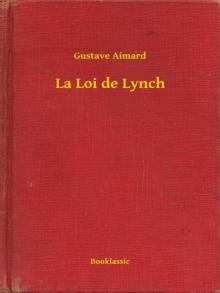 La loi de lynch. English
La loi de lynch. English The Guide of the Desert
The Guide of the Desert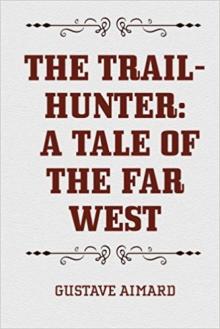 The Trail-Hunter: A Tale of the Far West
The Trail-Hunter: A Tale of the Far West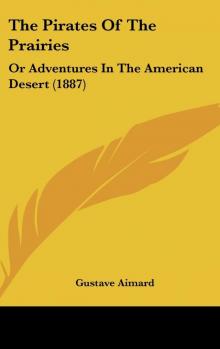 The Pirates of the Prairies: Adventures in the American Desert
The Pirates of the Prairies: Adventures in the American Desert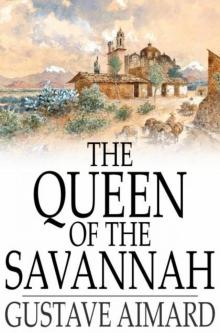 The Treasure of Pearls: A Romance of Adventures in California
The Treasure of Pearls: A Romance of Adventures in California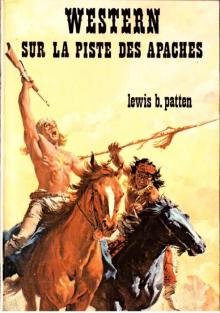 Les outlaws du Missouri. English
Les outlaws du Missouri. English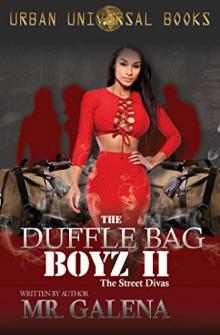 Les trappeurs de l'Arkansas. English
Les trappeurs de l'Arkansas. English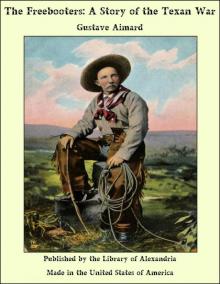 The Border Rifles: A Tale of the Texan War
The Border Rifles: A Tale of the Texan War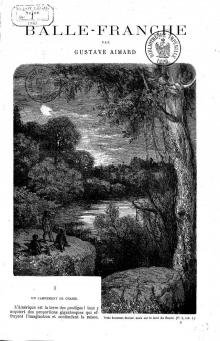 Balle-Franche. English
Balle-Franche. English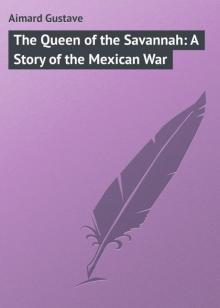 The Queen of the Savannah: A Story of the Mexican War
The Queen of the Savannah: A Story of the Mexican War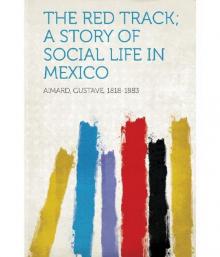 The Red Track: A Story of Social Life in Mexico
The Red Track: A Story of Social Life in Mexico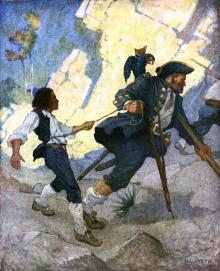 La fièvre d'or. English
La fièvre d'or. English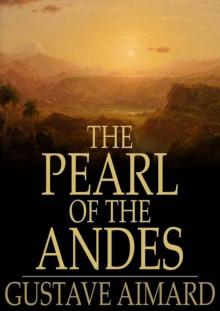 The Pearl of the Andes: A Tale of Love and Adventure
The Pearl of the Andes: A Tale of Love and Adventure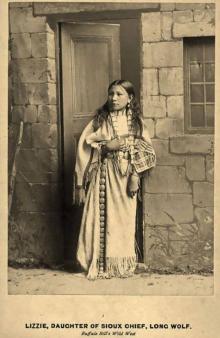 Les fils de la tortue. English
Les fils de la tortue. English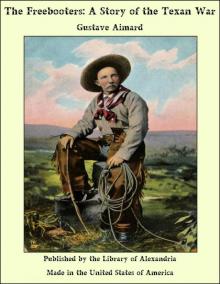 The Indian Chief: The Story of a Revolution
The Indian Chief: The Story of a Revolution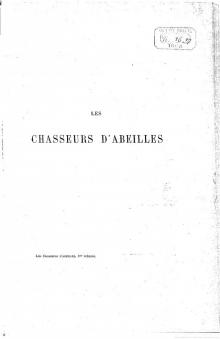 Les chasseurs d'abeilles. English
Les chasseurs d'abeilles. English The Adventurers
The Adventurers